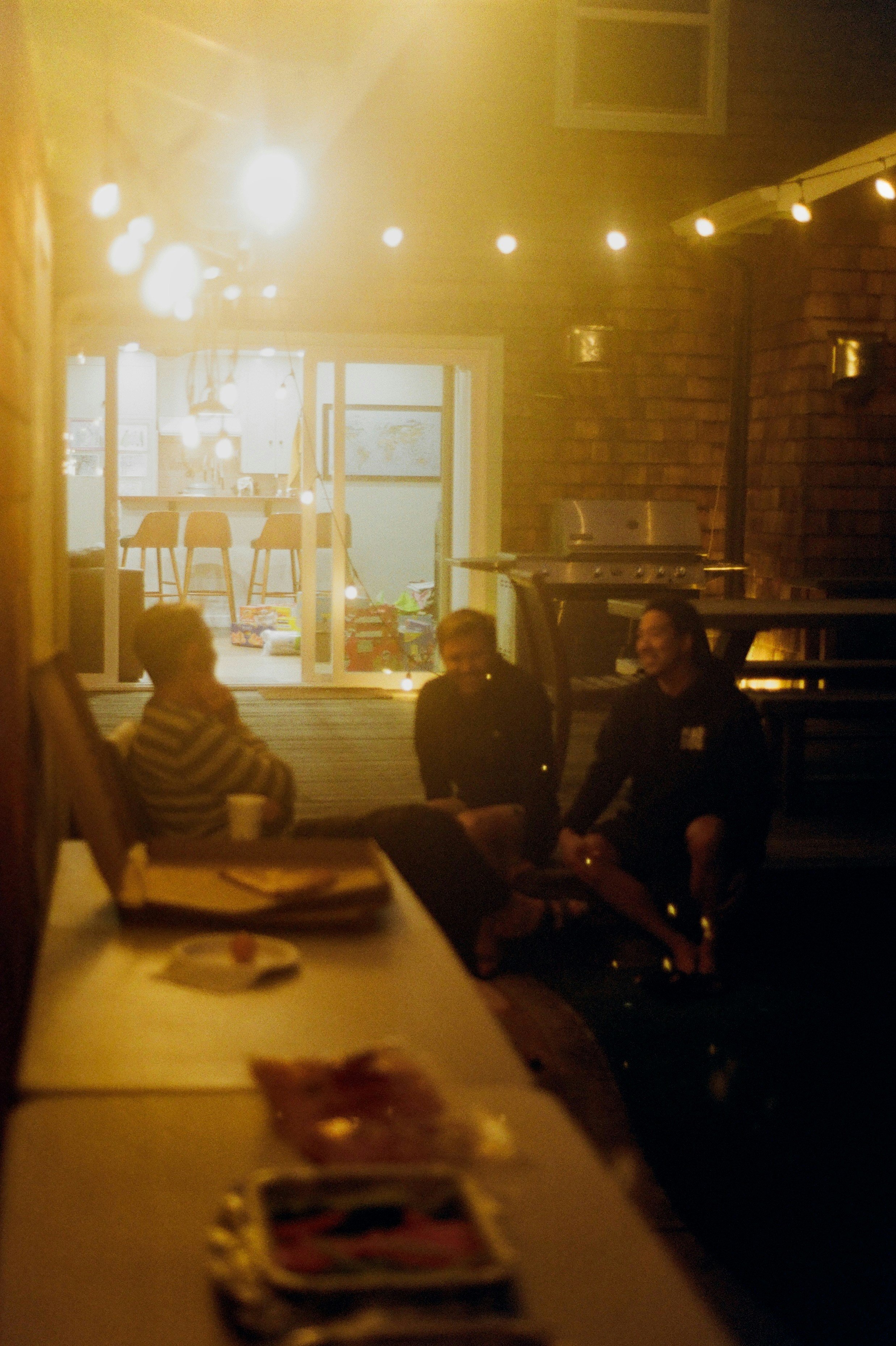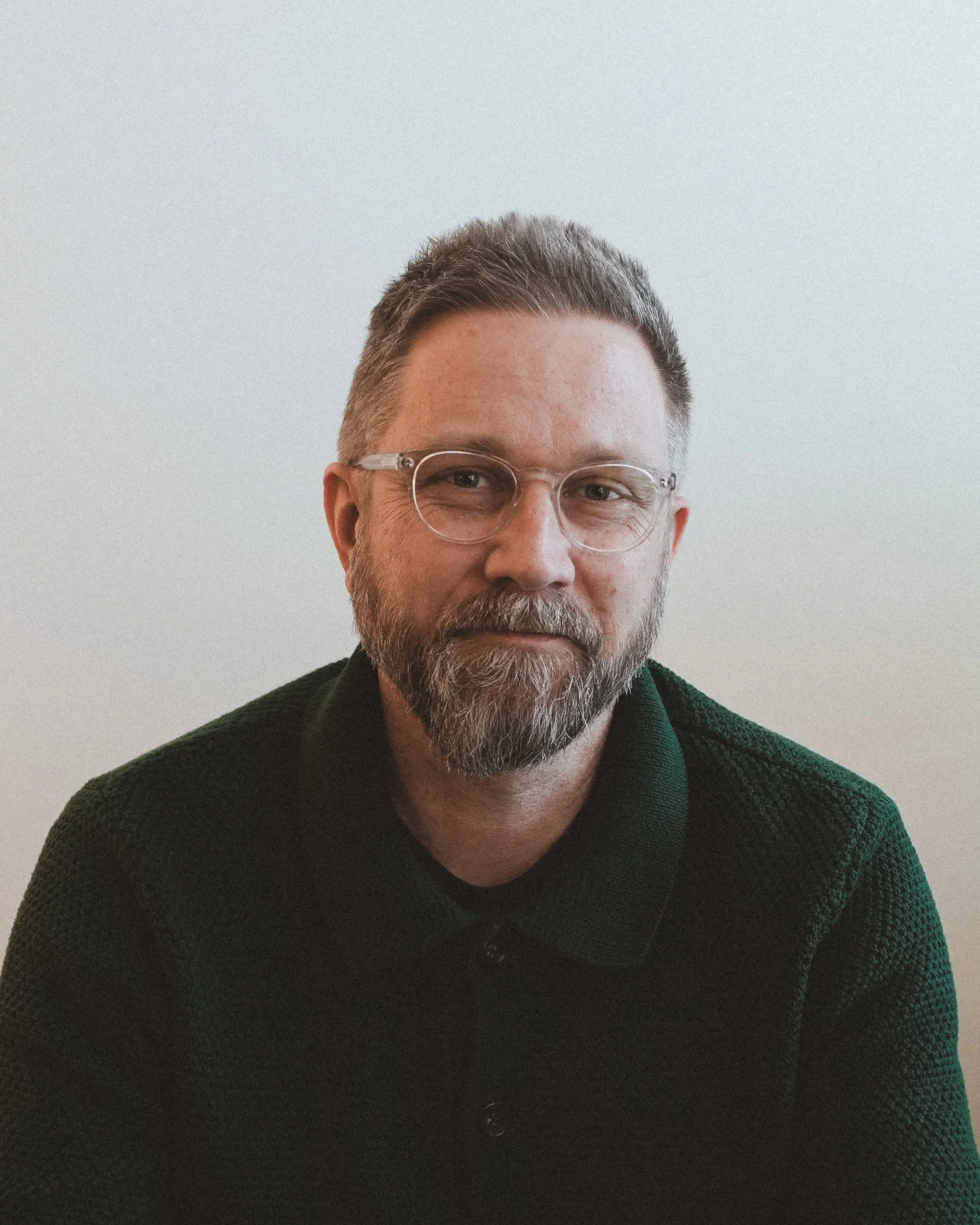
MEANINGFUL COMMUNITY FOR MEN, BUILT AROUND SELF-EXPLORATION
In-person gatherings where men can talk about life through the lenses of psychology and philosophy, facilitated by professionals. A reliable place to go. A thoughtful group of friends.

THE WHY
WE’RE INCREASINGLY ISOLATED (AND TOO ONLINE).
One study showed a fivefold increase over the last thirty years in men who report having no close friends (15% in 2021). Public gathering spaces have diminished, social rituals have changed, and in-person community has been replaced by social media, which very often increases symptoms of depression, anxiety, anger, isolation, and negative self image. Communal spaces such as recovery groups, faith communities, and business networks are, by nature, not for everyone. Fraternal orders and service organizations can sometimes be insular and antiquated. We want to add another option for men, a reliable in-person community where men can connect with guys who know their name.
THE CONVERSATION AROUND MASCULINITY NEEDS MORE THOUGHTFUL VOICES.
The majority of men were never given tools for things like emotional intelligence, self-regulation, or healthy communication. And many were never given a picture of masculinity that valued thoughtful self-awareness or philosophical reflection. But there’s a cultural shift happening. Men are increasingly seeking resources for self-improvement, including interest in character-shaping philosophies like Stoicism. The market has responded with an endless sea of podcasts, videos, and books, not all of them helpful. Factor in the rise of AI and it’s possible we almost have too much content. So we want to help focus the conversation, translate some of the insights men can pull from philosophy and psychology, then facilitate rewarding conversation.
WE NEED A PLACE TO PRACTICE CURIOSITY, OPENNESS, AND EMPATHY.
Where do men go to have existential conversations? Where do they talk about their fears, regrets, and struggles? Where can men be honest about what they really believe without pressure to spout truisms and tropes? Where can men question dogma? Where can they talk about their lives and have thoughtful peers express empathy? Where can they go to be intellectually stimulated and morally challenged. What communities provide both catharsis and encouragement? What meetings do they walk away from feeling like they know themselves a little better?
THE STRUCTURE
RESOURCES
Digital guides that distill ideas from philosophy and psychology, meant to drive personal reflection and discussion.
MEETINGS
In-person gatherings, facilitated by trained leaders, where men reflect on the provided content.
RETREATS
Extended, purposeful time away, led by professionals, focused on deeper self-reflection and connection.

THE EXPERIENCE
Twelve men gather on the back patio of a local brewery. Some are meeting for the first time, others are catching up since the last time they were together. Two men bond over a niche tv show they both watch. Others learn their kids go to the same school. They settle in and go around the circle with brief introductions. The facilitator goes over the group norms: be curious and respectful, honest and not performative, etc.
This week’s discussion is built around insights from Irvin Yalom’s Existential Psychotherapy, specifically the idea of being responsible for our own lives. A blog post with quotes, links, and reflection questions was made available the week before. Some men chose to go deep, exploring the source material on their own, while others just skimmed the topic. The facilitator gives a ten minute lesson highlighting the main ideas, then prompts the men to share their insights.
The discussion starts loose and philosophical. Light hearted debate about whether humans even have free will flows into reflection about how much decision-making is subconscious. Men share insights from various books they’ve read on the subject. One man talks about how his views have changed along with his religious convictions. Though earnest, the conversation is peppered with jokes and laughter.
The facilitator then brings the conversation down to the ground, asking the men to interact with a list of ways people avoid responsibility. The men talk about their fears, regrets, and guilt. They reflect on the ways depression can undermine hope and disappointment can lead to self-protection. As the conversation becomes more vulnerable the men lean in. At the ninety minute mark, the facilitator hits pause.
An invitation is extended to the show one guy’s band is playing later that week. Some of the guys close out their bill and head out. Some stick around a little longer, then decide to change locations and get some tacos. Later that night the text thread comes alive with guys sharing links to the books and standup comedy specials they mentioned. The next meeting is in two weeks, same time, same place.
THE FOUNDER
My name is Sean Mortenson. I’m a licensed therapist (MS, MDiv, LPCC) and the founder of Union Lodge. I sit with men (and their partners) everyday. I see the stress and the wounds they’re carrying. I see the problems they bring on themselves and their lack of tools to understand their own inner worlds, let alone share them with someone else. I see the tragic visions of masculinity capturing imaginations. I see therapy being reduced to absurd tropes. And I see men trying to navigate it all in isolation, partly because they’ve been told that’s what men do.
I’ve worked to create honest, healthy community for decades, as a pastor (in my former life) and now as a therapist. I’ve gained some hard earned wisdom in that time, challenging norms and navigating unhealthy systems. Union Lodge is an application of the lessons I’ve learned in response to a need I can’t ignore. There is already a beautiful, in-person community forming around the vision. I’d love your support to help bring that vision to its full potential.
